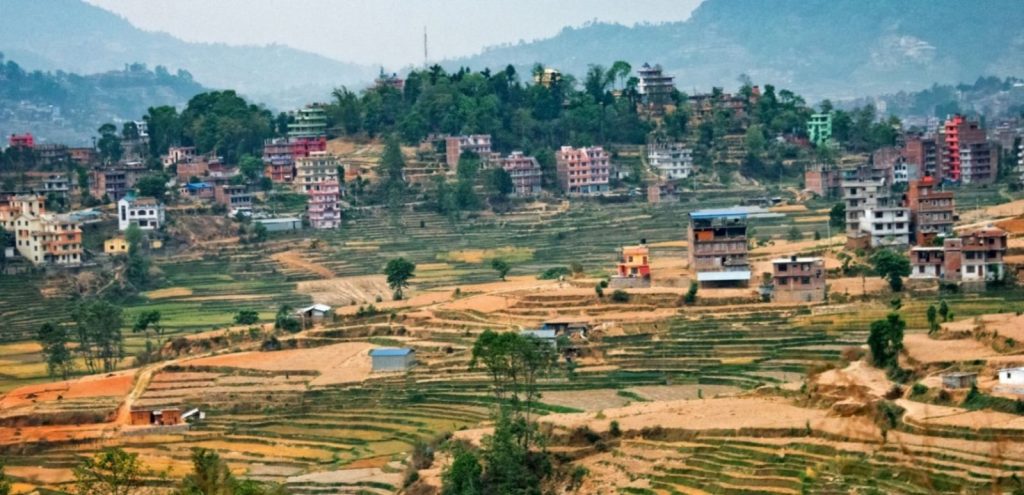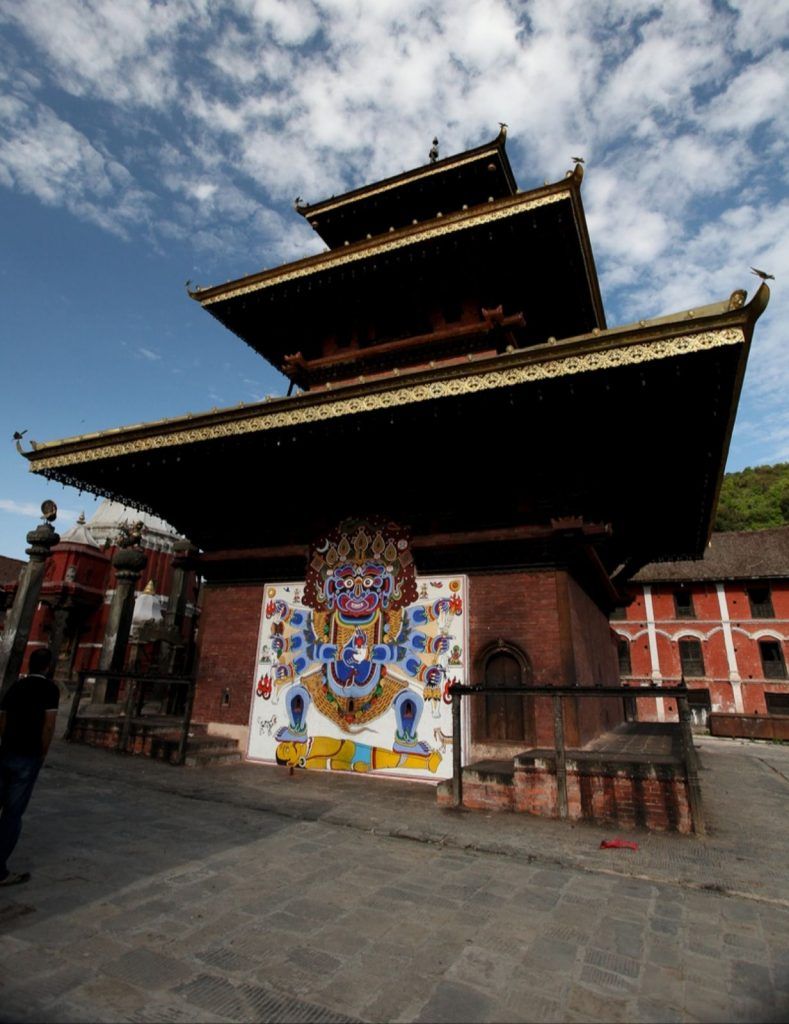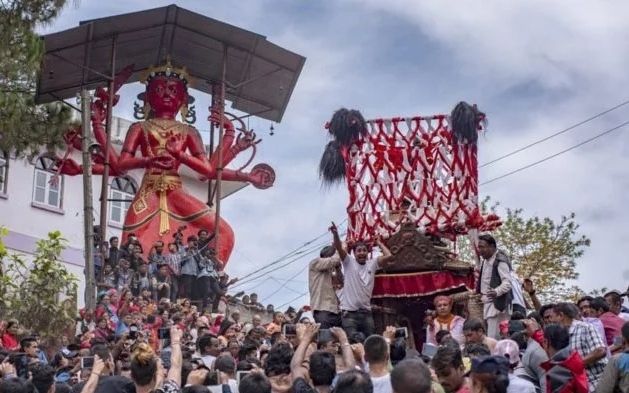Banepa is the historical town with the many temples and old traditions and cultures. It is a small town in the eastern part of the country with great religious and cultural values. This historical town is also known as the town of Lord Ganesh( The elephant headed god of good omen). It is believed to be the state with the oldest settlement of people when the entire Kathmandu valley was covered with water. Banepa is the combination of two Newari words ”Bane” and ”Pa” in which the Bane means Business and Pa means Place meaning the Place of business. There were many ancient names of the Banepa such as Banepur, Baniyapur and Banipur. The town has a population of about 24, 764 people. Majority of the population are Newar ethnicity whereas there are Brahmin, Chhetri, Tamang and Magar also.


According to legends, Banepa is known to be the state with the longest settlement of people when Kathmandu Valley was the big lake. Banepa had trade relations with Tibet from ancient times so it is also known as ‘Bhont’, ‘Bhonta’ and ‘Bhondey’. During Thakuri period (879-1200 AD) Bhaktapur and Banepa was the core political area. King Ananda Deva Malla united the scattered villages and made Modern Banepa surrounded by the eight gates with a Ganesh in eight different directions in 1153 BS.
This town is a municipality situated at about 4800 ft above the sea level. It lies about 25 km east from the Kathmandu valley. The town is located in the Kavre district of Bagmati Province in Central Nepal. It consists of wooden houses, temples, public halls, shops, shopping malls and monuments . On the north east side of the city we can get the majestic picture of the Gorakhnath hill. The town is filled with the people busy in their shops and business. It also showcases the typical Newari culture of the country.
Banepa is a town filled with both historical as well as traditional heritages. The town consists of the many important pilgrimage sites of Nepal which carries the significance value in Hindu as well as Buddhist religion. The main attractions of Banepa are
The temple is one of the main attractions of the town. It is located approximately 1 km northeast of the town along the Punya Mata river. The temple is believed to be built in the 17th century. The main shrine of the temple contains the scripture of Chandeshwori slaying the demon Chanda. According to the story found in the Himavatkhanda Purana, the demon after praying for a long time to Brahma , acquired himself a weapon that could defeat the Gods in Heaven. All the gods disguised themselves as birds and animals and hid inside the Chanpa tree in the Changu area. Among them was Chandeshwori who killed the demon after the big and terrible fight between them. As the Lord Shiva gave him boon that made him beatable only by women.


It is said that down at the big rocks around the river we can still see the marks of the big fight between the Goddess and the demon. This temple was later established in her honour. It has the biggest graffiti of Kal Bhairav on its one of the walls. The priestess of the temple is always a girl child less than ten years old. The main festivals celebrated at the temple are Chandeshwori jatra, Teej, Shivaratri and Bala Chaturdashi.
The temple is located between the Banepa and Panauti. It lies in the 1 km south of the town. According to the Hindu puran, the poor Vaisya named Shiva Das who suffered from his wealthy relatives became a hermit. On the advice of a sage named Ritu he prayed to the Dhaneshwor who in return for his devotion granted him a lot of property. As a symbol of gratitude he established this temple. It is also believed that the right ear of Sati Devi fell when Lord Shiva wandered carrying her dead body in grief. The temple is a multi roofed structure and the main shrine is the Panchamukhi Shivalinga, one of the most famous Shiva Lingas in Nepal. There are also idols of Bhairav, Narayan, Laxminarayan, Hanuman, Mahankal, Umamaheshwor and Nandi. The temple is mostly crowded with devotees during the festivals of Dhanya Purnima, Shivaratri and Bala Chaturdashi.
It is located at the central part of the city. The town is surrounded by 8 Ganesh temples with 8 adjacent ponds and Phalchaa. The name of the Ganesh temples are as follows
Tukampwo Ganesh –
It is the main Ganesh temple among the eight Ganesh. This was established at the first of all Ganesh Temple by the King Anandadeva Malla after forming the new kingdom of Banepa. It is also the major temple of Banepa. The temple is at the south of the city.
Khoba Ganesh at Southeast
Waku Ganesh at East
Thachhu Ganesh at North
Kanthu Ganesh at Northeast
Kwonla Ganesh at Southeast
Talapukhu at West
Jyasanani Ganesh at Northwest
There are many unique festivals and old cultures and traditions that are followed by the people of the Banepa. Many festivals have their own religious and cultural value to the town. The festivals and events celebrated by the people are as follows
The Chandeshwori Jatra is considered to be the largest festival of the Kavre district. It is celebrated for the three days from the Baisakh purnima according to the Lunar calendar. The Goddess Chandeshwori or Parvati is worshipped for three days of the jatra. It is celebrated in the honor of victory over the Demon Chandrasur on full moon day of the New year. The first day is the Chariot procession of goddess Chandeshwori, the next day is the worship day of the goddess( mata puja) and the last day is known as Kalan daan where devotees make various offerings to the goddess.


It is the worshipping of the young girls who have not got their menstruation. The girls are worshipped during the Gunla and Krishna janmashtami. It is mainly celebrated by Newar Buddhists. They make different offerings to the young girls such as clothes, ornaments, food and sagun.
It is another main event of the people of the Banepa. The jatra is celebrated during Vijaya Dashami. The 8 Ganesh of the town are worshipped and made offerings during this festival. The people believed that the 8 Ganesh were guarding the town in all the directions. So in honour this jatra is celebrated.
It is celebrated on the day of Ashwin Krishna Pratipada the next day of the Indra Jatra.
This festival is celebrated once in twelve years. It was discontinued 38 years ago but people again re- continued as it has great cultural value. This dance is mainly performed during the VijayaDashami once in 12 Years. The dancers dance around the 8 Ganesh temple or the market area of the Banepa. They were special types of masks and the dance predicted the fight between the Gods and demons. Visitors can enjoy this unique dance either in the market area or the Ganesh temple.
We can visit this historical town by public transport from the new bus park of Kathmandu valley.
Shopping is my option in contrast to Red Bull. Regardless…


Hundreds of years of preservation and perseverance, nourished and timely…
Among the many 12 years festivals Nepal has, Lha Phewa…